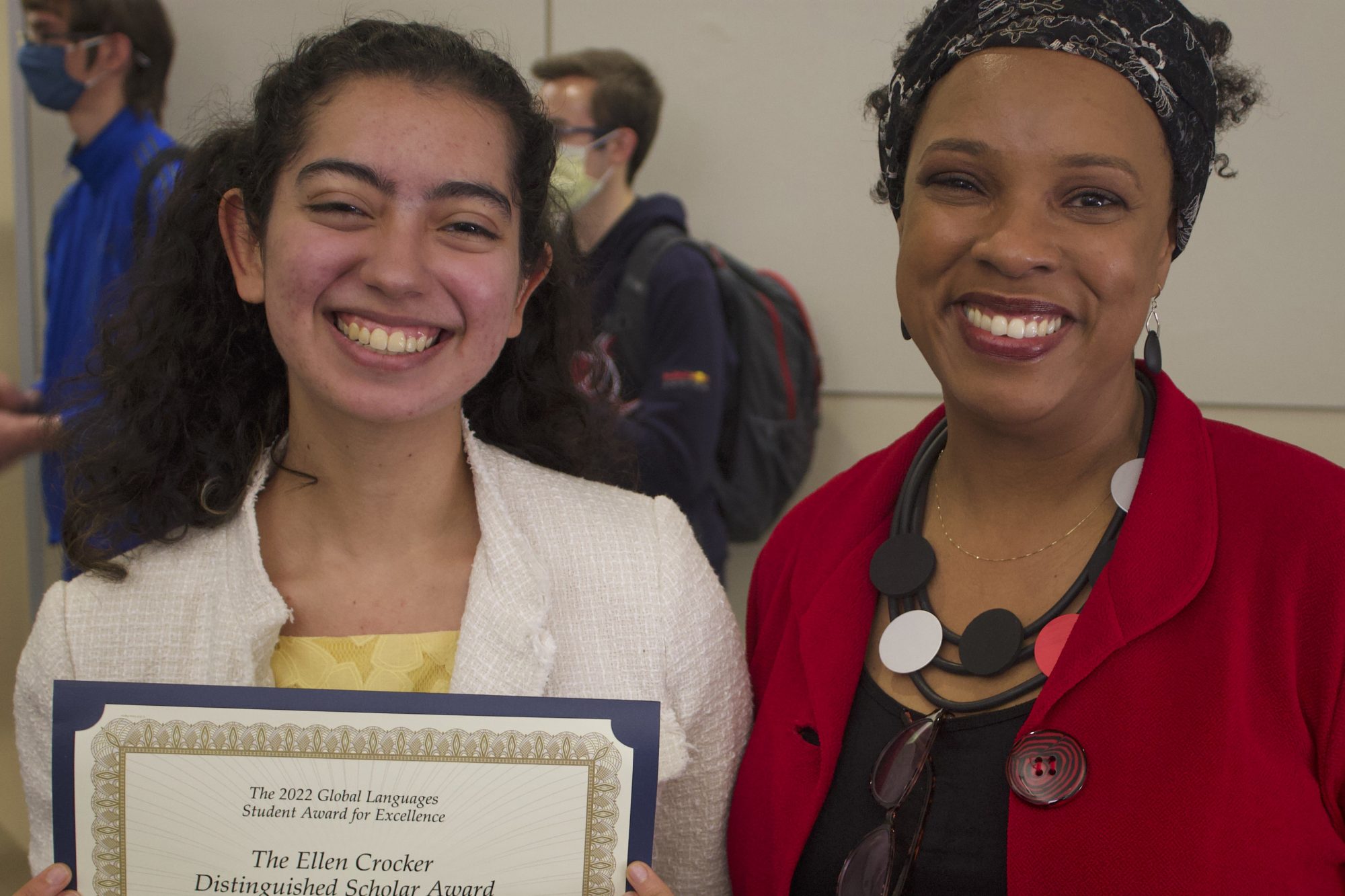
United Nations Educational, Scientific and Cultural Organization (UNESCO) has declared May 5 World Portuguese Language Day.
Why study Portuguese
In honor of Portuguese Language day, we highlight Luz Grisales Gomez. Grisales is an MIT senior majoring in Electrical Engineering and Computer Science, and recently received the Ellen Crocker Distinguished Scholar award in Global Languages for her dedicated study of Portuguese and French.
Grisales explained that her high school language classes in her native Colombia did not prepare her to actually speak the languages being studied, only to pass the tests. Once she came to MIT, she was determined to find out if there was another way to learn a language.
Grisales starting taking Portuguese subjects taught by Nilma Dominique, and discovered classes taught with culturally authentic materials; classes that provided cultural and historical contexts; and chances to interact with native speakers. She pointed out “The class experience included analysis of traditional music, non-verbal language, historical movies and documentaries.” Grisales travelled to Brazil in 2020 as part of MISTI’s Global Teaching Lab program, and found to her delight that the classes had prepared her to adapt to the language and culture of Brazil.
Grisales pointed out that learning languages and cultures of other countries contributes to the type of broad view she will need as she leaves MIT in order to engage in the world, and hopefully help to find innovative solutions to the world’s problems.
Portuguese is spoken by 260 million people
Portuguese is spoken by 260 million people around the world, including in Portugal, Brazil, Cape Verde, the Azores, Angola, Mozambique, Guinea-Bissau, and São Tomé and Príncipe. Other languages, such as Cape Verdean Creole, and Macanese patuá combine elements of Portuguese and other languages. A Portuguese-speaking person or nation is referred to as “Lusophone” (Lusófono).
An estimated 1.3 million native Portuguese-speakers live in the United States. In New England, Portuguese is the third most widely-spoken language after English and Spanish. Lusophone immigrants have played a pivotal role in New England history, for example in the history of whaling and the fishing industry, and have long-standing and emerging communities in New Bedford, Fall River, East Providence, Boston, Framingham, Everett and Somerville. Lusophone immigrants have also played a prominent role on the Red Sox.
Portuguese was introduced at MIT in 2010 to teach the language and cultures of the Portuguese-speaking world. Students may get a SHASS concentration in Portuguese Studies. MIT International Science and Technology Initiatives offer internship programs: MIT-Brazil and MIT-Portugal. MIT-Brazil’s Global Teaching Labs offer a unique opportunity for MIT students to learn by teaching and share MIT’s “mens et manus” approach with Brazilian students through STEAMD and entrepreneurship workshops.
